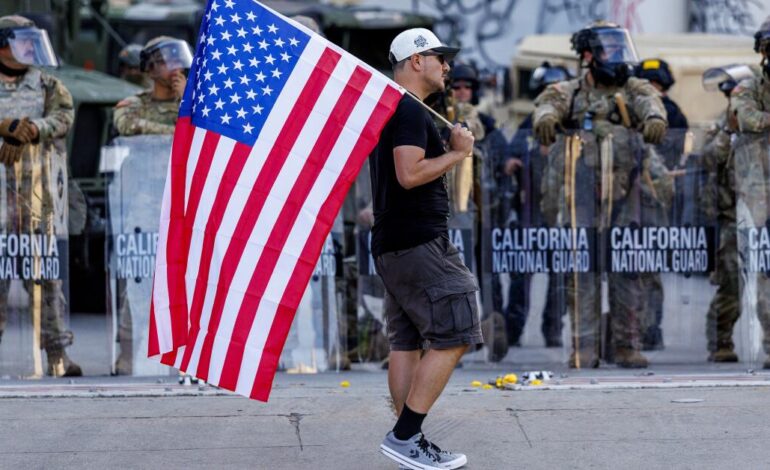Judge Declares Trump’s Troop Deployment in L.A. Illegal

A federal judge has ruled that former President Donald J. Trump‘s deployment of military troops to Los Angeles was illegal. This decision, made public on September 2, has sparked a debate regarding the implications of the ruling and the broader issues surrounding the use of military forces in domestic law enforcement.
Judge Charles R. Breyer issued a strong opinion against the deployment, stating that it violated legal principles governing the use of military personnel for civilian policing. The ruling has been viewed by some as a necessary affirmation of the rule of law, while others question whether this decision will have any real consequences for Trump, who has often been accused of manipulating legal frameworks to his advantage.
Many observers have noted that Trump’s legal battles often appear to stretch indefinitely due to the resources available to him. Critics argue that the judicial system allows for considerable delays, especially for defendants with substantial financial means and political influence. One commentator, Carl Matthies from Pasadena, expressed skepticism about the effectiveness of the ruling, pointing out that Trump has rarely faced significant repercussions for past actions. Matthies remarked, “You would think that if anyone ever deserved to be launched through a ‘rocket docket,’ it would be someone who was credibly accused of attempting a coup.”
Supporters of military deployment argue that the presence of troops can serve as a deterrent to crime, even without direct intervention. Elaine Vanoff from West Hollywood highlighted this point, comparing the deployment of troops to security personnel at estate sales in California, who provide a sense of safety without aggression. Vanoff criticized the ruling, suggesting that it undermines the government’s responsibility to maintain public safety. She questioned why there has not been a public survey to gauge the feelings of Los Angeles residents regarding their safety, particularly given the state’s substantial tax contributions.
The ruling raises significant questions about the balance between civil liberties and public safety. Advocates for civil rights emphasize the need to prevent the militarization of law enforcement, arguing that military forces should not be used for routine policing. On the other hand, proponents of troop deployment argue that in certain circumstances, such measures can be justified to protect communities.
As the debate continues, the implications of Judge Breyer’s ruling may extend beyond Los Angeles. The case highlights broader national conversations about the role of military forces in civilian life, especially in urban areas grappling with crime and unrest. Legal experts and political analysts will likely keep a close eye on whether this ruling influences future actions by government officials or impacts Trump’s ongoing legal challenges.
In the wake of this ruling, Los Angeles and other cities may need to reassess their strategies for ensuring public safety while respecting legal boundaries. The balance between security and civil rights remains a delicate issue that continues to provoke passionate discussions across the political spectrum.






